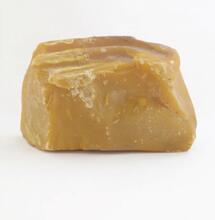Cannabis Nutrients, Fast or Slow Release?

The mineral salts that nourish cannabis can be fast or slow-release. Both macro and micronutrients and secondary nutrients can be made available at different speeds to meet the requirements of the cannabis grower.
Fast release nutrients
Nutrients in cannabis cultivation can be released quickly or slowly depending on the requirements of the plant and its grower. Calcium nitrate, potassium nitrate, or urea are usually used to make nitrogen quickly available for absorption through roots. In the case of Phosphorus, diammonium phosphate or monoammonium phosphate are common sources used for rapid remediation of nutritional deficiencies that need to be solved quickly.
In the case of Potassium, its sulphate or nitrate are very effective. In the case of Calcium, nitrate and chloride are the best solutions. For Magnesium, the rapid action of Epsom salts is well documented. In the case of Sulphur deficiencies, ammonium sulphate is a good rescue option.
Slow release nutrients
The slow release of nutrients serves to provide the soil with a balance of all necessary nutrients throughout the crop cycle.
For example, to do this with nitrogen, seaweed, guano, fish meal and a good rich compost are great options. In the case of Phosphorus, manure compost is a good natural source, as well as phosphate rock powder, natural phosphates and phosphate rock.
To have an abundance of potassium available, Guano (bat droppings) and compost are the best options, in addition to potassium silicate. For calcium, limestone is very good, as is agricultural lime. For a continuous release of magnesium, its sulfate, dolomite and guano are all excellent options.
To release microelements slowly, the use of chelating agents, compost, and worm castings are very good options. Many slow release nutrients also fall into the category of being Organic which makes them popular with growers who are looking for a more natural way of growing.
Pros and cons of fast and slow-release nutrients
Fast-release nutrients are good for treating deficiencies, but they can generate a nutrient blockage where the plant locks out any further uptake due to receiving an excess of one or more specific nutrients. This can be very harmful to cannabis so it is important to understand the products you are using and their correct dosages. A good slow-release nutrient, and a good quality substrate, will make a world of difference throughout your plant's entire lifecycle.
More From Soft Secrets:
The differences between Soil and Coco
Nitrogen and Phosphorous Deficiencies in Cannabis







